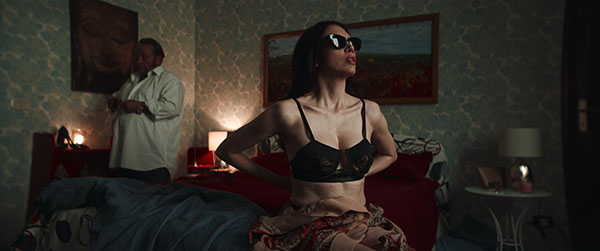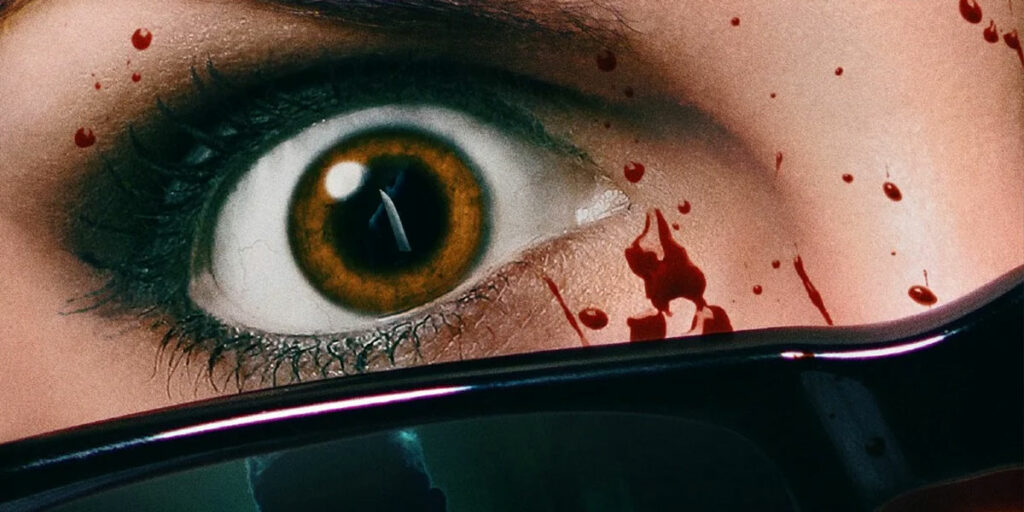There’s a stylish film lost somewhere within Dark Glasses, the return of Dario Argento to directing after 10 years, but the inconsistent narrative choices often get in the way.
Dark Glasses (Occhiali Neri) premiered at this year’s Berlinale and marked the return of Dario Argento to directing after a 10 years absence. He is one of the most influential Italian filmmakers dedicated to the horror genre and helped popularize what would be called “giallo”, a subgenre that usually sets a gruesome murder-mystery in the context of stylish detective fiction. In other words, a fancier slasher. Argento’s movies are often one of a kind because of his special attention to art direction and set designs, going for visually stunning scenarios that set the tone for a bloody fest.
This attention to technical art details is once again present in Dark Glasses, but it ends up being one of the few things remarkable about the movie overall. In the film, a ruthless serial killer is preying on high-priced sex workers and sets his sights on Diana, portrayed by Ilenia Pastorelli. After barely escaping him, she gets involved in a car accident that blinds her and kills the entire family of a little boy called Chin (Andrea Zhang), who will eventually flee from foster care and cross paths with our protagonist. As Diana tries to adapt to her new reality, the killer lurks around waiting for the right moment to act.
Dark Glasses feels like Argento had a to-do list in his mind that did not land well in the script. Many elements that keep the narrative moving forward are there for convenience, and the character’s motivations to go from one place to another are often questionable. Diana befriending the little boy Chin and playing a sort of maternal role in the state she’s in is only one of the many aspects of the story that lands simply because it makes sense for the plot to unravel as planned. We then end up rooting for these characters just because they find themselves in such a vulnerable position. In order to establish a slight connection between Diana and Chin so they will actually care for one another, the movie shifts in tone completely, and the result is a narrative that often forgets the argument that sustains it, which is the imminent danger of a serial killer returning to finish what he started.

There’s nothing wrong with adding layers of drama in intricated horror stories, but the characters in Dark Glasses are unidimensional and barely have any personality. On the other hand, the horror itself is also poorly conceived, since the level of tension in the film decreases as the story progresses. More than once it repeats the formula of dumping characters we don’t care about in the narrative, only for them to die instants later, creating an anticlimactic atmosphere every time the suspense goes on. You, won’t be disappointed if you’re expecting gruesome deaths and a bunch of blood spilling all over since the gory effects look as brilliant as any other from a Dario Argento film, but the circumstances that lead to these scenes are so poorly conducted that often leaves a taste of indifference.
All these factors lead to a direct confrontation between the film’s flaws and its remarkable qualities. Apart from stunning cinematography and energetic editing typical of Argento’s films, the most astounding aspect of the film is the vibrating soundtrack that alternates between corny suspenseful sequences to dazzling techno beats that immediately reminded me of the outstanding score work done by Disasterpiece in It Follows (2015). It works with the style Argento is going for and conducts alone the pulsing tension of the thrilling scenes, which would otherwise be brilliant if the script was slightly as compelling.
Ilenia Pastorelli is consistently good in the role of Diana, but her character doesn’t really grow or evolve throughout the movie, and feels like the narrative uses her blindness condition only as an impediment in her attempts to evade the killer, without taking advantage of it to effectively develop the character. There’s a stylish film lost somewhere within Dark Glasses, which ultimately lacks some thematic pull. Argento’s style is present visually, but the screenplay ends up being the real killer here, with a pile of plot conveniences leading up to a predictable ending. The result is an anticlimactic sort of horror movie where even the assassin’s presence doesn’t hold up the haunting atmosphere the score is strenuously trying to set up.
Dario Argento’s Dark Glasses (Occhiali Neri) had its World Premiere at the Berlinale on February 11 and is now available to watch on Shudder. Read our review of Cette Maison, another film from the 2022 Berlin Film Festival.

